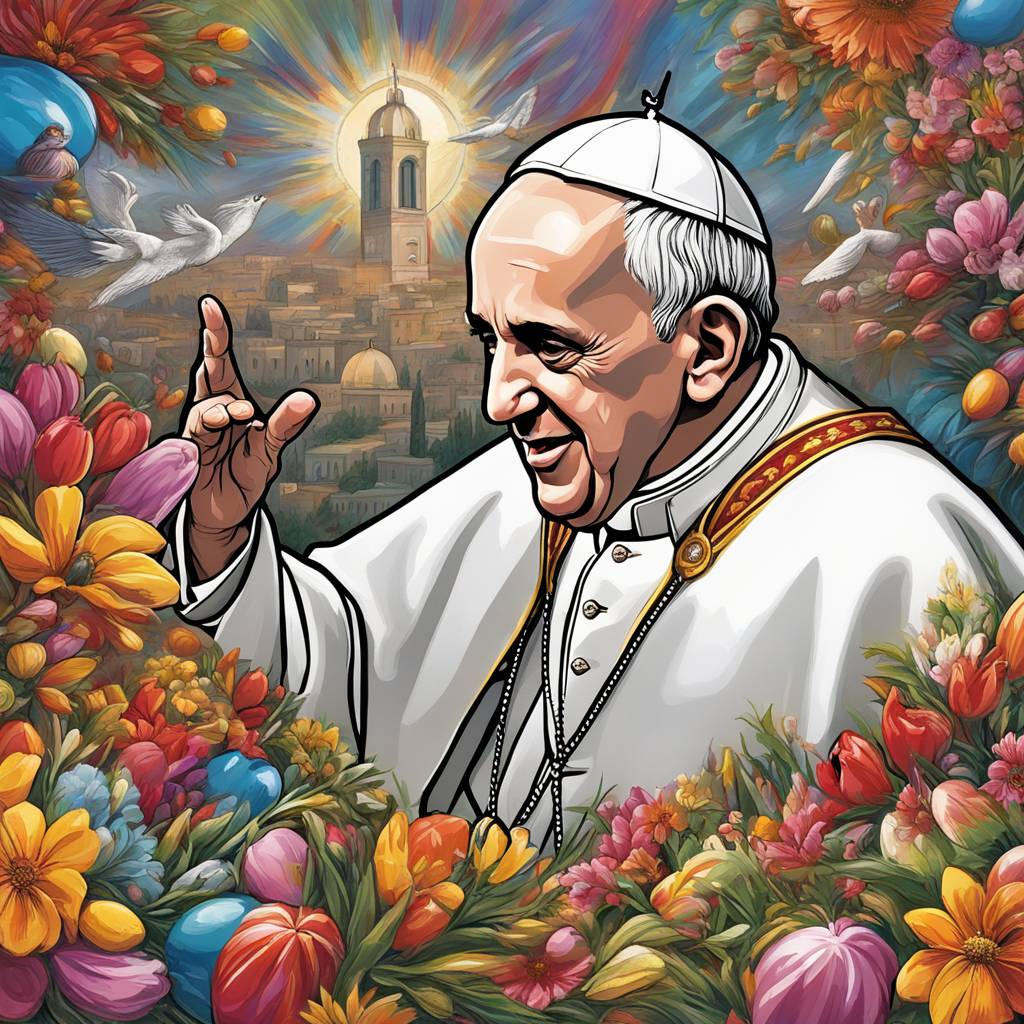In his Easter message on Sunday, Pope Francis once again called for an immediate cease-fire between Israel and Hamas, as well as a prompt release of the remaining hostages taken by the Palestinian militant group on October 7. Speaking to a crowd of about 60,000 people gathered in front of St. Peter’s Basilica in Vatican City, the pope focused on the plight of people in war-torn nations and urged for more humanitarian aid to reach the Gaza Strip. He also called for the release of all Israeli hostages and offered thoughts for the Lebanese people caught in the conflict between Israel and Hezbollah.
Not only did Pope Francis call for peace in the Middle East, but he also advocated for a truce between Russia and Ukraine, about two years after he first called for an “Easter truce.” His softer call for peace in Ukraine comes after a recent controversial Swiss radio interview where he encouraged Ukraine to have the “courage of the white flag” and to seek negotiations with Russia. Vatican spokesperson Matteo Bruni clarified that the pope was not asking Ukrainians to surrender but was using the symbol of the white flag to indicate a truce and a diplomatic solution for a just and lasting peace.
Pope Francis has long been an advocate for peace and cease-fires in conflict-ridden regions. About a month after the conflict between Israel and Hamas began, he called for a cease-fire during his Angelus Prayer and emphasized the need for the return of hostages and aid to the wounded in Gaza. He has consistently condemned the violence and conflict in the region, calling for an end to hostilities that have grave repercussions on the civilian population, especially children who are the most vulnerable in times of war.
In addition to the conflict between Israel and Hamas, Pope Francis also mentioned other ongoing conflicts around the world in his Easter message. He highlighted the violence between Armenians and Azerbaijan over Nagorno-Karabakh, the civil war in Syria, and the violence against the Rohingya people in Myanmar. He also offered a prayer for the people of Haiti, who have been experiencing widespread gang violence and political instability. The pope urged for an end to violence, devastation, and bloodshed in these regions, calling for a path towards democracy and fraternity.
The pope’s message resonates with his longstanding commitment to promoting peace and reconciliation globally. He continues to be a voice for the voiceless and a beacon of hope for those affected by conflict and violence. Through his Easter message, Pope Francis reminds the world of the importance of compassion and understanding towards those who are suffering and calls for concrete actions to achieve peace and justice in war-torn regions. As the leader of the Catholic Church, he encourages people of all faiths to work together towards creating a more peaceful and harmonious world for present and future generations.
Pope Francis’s call for an immediate cease-fire in the conflict between Israel and Hamas, as well as his advocacy for peace in Ukraine and other global conflicts, highlights the urgency of addressing humanitarian crises and promoting dialogue and reconciliation. His message serves as a reminder of the inherent dignity and worth of every human being, regardless of their nationality, religion, or background. The pope’s words carry a powerful message of hope and solidarity, inspiring individuals and nations to work towards building a more peaceful and just world for all.













